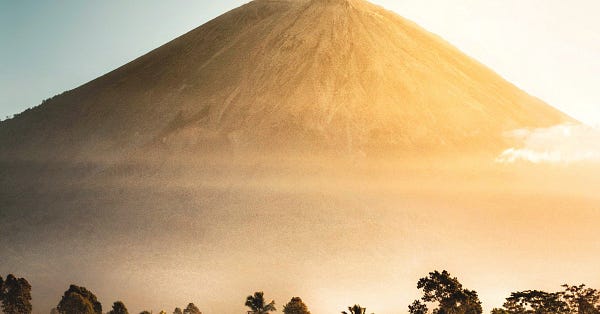✍️Science Writing News Roundup #28 (January 27, 2021)
A guide for aspiring freelance science journalists in Southeast Asia + SciDev.Net launches free course to help journalists report the science of COVID-19.
AAAS and Subaru announce 2021 Awards honoring outstanding science books for young readers. For 16 years, the prizes have recognized outstanding science writing and illustration for children of all ages with the aim of encouraging the creation of even more quality books to foster children’s understanding and appreciation of science.
📚 Resources
SciDev.Net launches free course to help journalists report the science of COVID-19. The course is aimed at journalists who report on the coronavirus but have little or no experience in science journalism.
SciLine asked scientists and public health experts the following questions: 1) What new variants of SARS-CoV-2 are concerning? 2) How do mutations in these variants change the virus's ability to infect people? Reporters can use the answers in news stories, with attribution to the scientist who made them!
The Science Media Centre in the UK has been posting quotes from scientists and experts to help journalists covering COVID-19.



🚀 Opportunities
Applications are now open for the 2021 EurekAlert! Fellowships for International Science Reporters! The fellowship is open to early-career science and health journalists in China, India, the Balkan region, majority-Arab states in the Middle East, and Central and South America.









📡 Ideas
Media outlets inconsistently mention uncertain status of COVID-19 preprints: An analysis of some of the most widely covered COVID-19 preprints found that media outlets vary widely in the way they refer to preprints. About half of stories didn't mention that the research was unreviewed or otherwise unverified. Naseem Miller of Journalist's Resource asked Alice Fleerackers, a co-author of the new study, how reporters can best cover preprints and here are her tips.
Unique models fuse science with journalism in Nigeria. Science writer Abdullahi Tsanni reports about the ways in which journalists and scientists are collaborating to help promote science literacy in Nigeria. “In my country, there seems to be little public interest in science, even though it has the potential to solve critical societal challenges such as food insecurity, climate change, and disease outbreaks.”
How to report with accuracy and sensitivity on contested illnesses: In this article, Julie Rehmeyer describes her personal journey with a contested illness, made even more relevant today as COVID long-haulers sometimes struggle to find acceptance in the scientific and medical communities. Journalists, she says, can play a critical part in framing and contextualizing patients’ experiences, learning from and avoiding the mistakes that have left others feeling marginalized.
📺 Videos
SciComm Lunch & Learn: A Year of Errors and Lies – Looking Back on a Year of COVID-19 Misinformation (Duke Science & Society)
COVID-19: Clinical Labs in the Media Spotlight with Dr. Katherine Wu and Dr. Susan Butler-Wu (American Society for Microbiology)
UK Conference of Science Journalists 2020: Replays of most sessions are now available
Spotlight with Scientists in School: Sarah Everts, Science Journalist
Understanding COVID-19 Vaccines: A Virtual Conversation with Dr. John Moore (Science Writers in New York)
She's On Call - Episode #31 with New York Times science reporter Apoorva Mandavilli
📅 Events
COVID-19 Vaccines: Combating Misinformation (January 27, 2021)
Understanding the Vaccine Race: A Virtual Conversation with Jon Cohen, Pulitzer Center Grantee and Senior Correspondent at Science Magazine (January 27, 2021)
Women are missing from our coverage, so how do we fix it? (January 28, 2021)
Pitch Clinic with SoCal Science Writing and editor Rosie Mestel (January 28, 2021)
SciLine’s media briefing: Climate Essentials for 2021 (January 28, 2021)
Webinar | Covering the COVID-19 vaccine: What journalists need to know (January 29, 2021)
The Next Step: Career Panel and Mentoring For Aspiring Professional Writers & Journalists (January 30, 2021)
Medium in Conversation: Vaccine Questions, Answered with Tara Haelle, a freelance science and health journalist (February 2, 2021)
Freelancing Business Basics for Science Writers (February 4, 2021)
Addressing Climate Science Denial (February 4, 2021)
☄️ Career opportunities
Science writing and communications internship, The Broad Institute of MIT and Harvard, US-based
Science Writing Associates, The New York Academy of Sciences
Assistant Health and Medicine Editor, The Conversation, US-based
Science Writer (m/f/d), kurzgesagt, Munich, Germany
Science Writer, Texas Biomedical Research Institute, San Antonio, TX
Environment Editor, The Bureau of Investigative Journalism, London, UK
Diverse Voices in Science Journalism (DVSJ) Intern, US, Remote
Custom Content Editor, GenomeWeb, US, Remote
Science Communications Intern, Enzyme Communications, UK-based
Associate Director of the Writing and Public Speaking Center, University of Montana, MT
Assistant Editor, LabX Media Group, Remote
Assistant Science Editor, LabX Media Group, Remote
Senior Editor, LabX Media Group, Remote
More jobs 👉Science Writing News Roundup #27
👉 Don’t miss any updates from the Science Writing News Roundup:
Worried you missed something? See previous newsletters here. What would you like to see in the newsletter? Please send me your suggestions by replying to this email: sciencewriting@substack.com😃
If you liked this post, share it with your friends 💙





